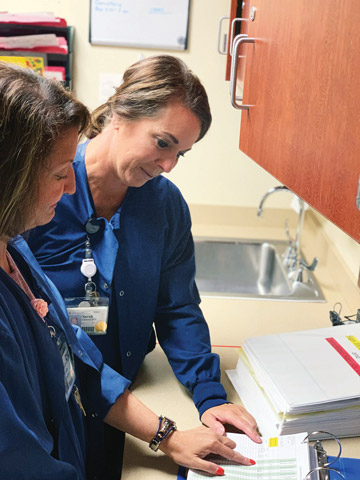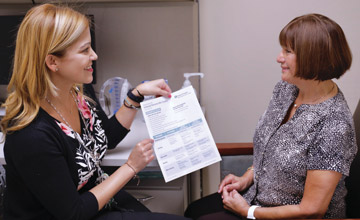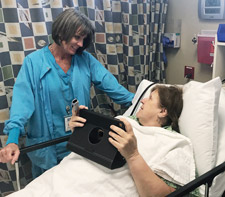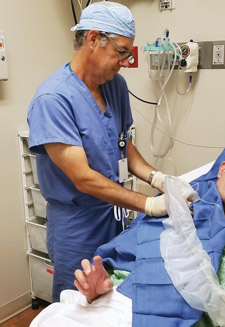The OR team at Lakeside Surgery Center in Omaha, Neb., works hard to manage patients’ post-op pain with an eye toward the addiction epidemic. “Our nation is in the midst of an opioid crisis, and we’re doing our part to help fix it,” says Laura Rowe, MSN, RN, the center’s director of nursing. It’s that focus on making surgery a little more comfortable while protecting patients from opioid-related harm that earned Lakeside Surgery Center the OR Excellence Award in Pain Control.
The center’s home state of Nebraska was one of the first in the nation to pass a law requiring physicians who prescribe opioids to educate patients about the potential for and the dangers of addiction and overdose. The law also limits all opioid prescriptions to a 7-day supply. To comply with the new legislation, Lakeside created a form that outlines the risks of physiological and psychological dependence on opioids, outlines non-opioid treatment options and details how to safely dispose of unused pills. Patients who’ll receive opioids for post-op pain control must sign the sheet before undergoing surgery.
If surgeons believe patients will require more than a 7-day supply of opioids, they must fill out and sign a separate form acknowledging that they educated patients about the risks of taking an extended course of opioids and list on the form the medical conditions necessitating more than a week’s supply of the painkillers. The form remains with patients’ charts on the day of surgery and is added to their medical records.
“We’ve realized that our team plays a crucial role in educating patients about alternative pain control options,” says Ms. Rowe. “We explain that they don’t have to take opioids to find relief from post-op pain. There are other effective methods.”
.svg?sfvrsn=be606e78_3)




.svg?sfvrsn=56b2f850_5)